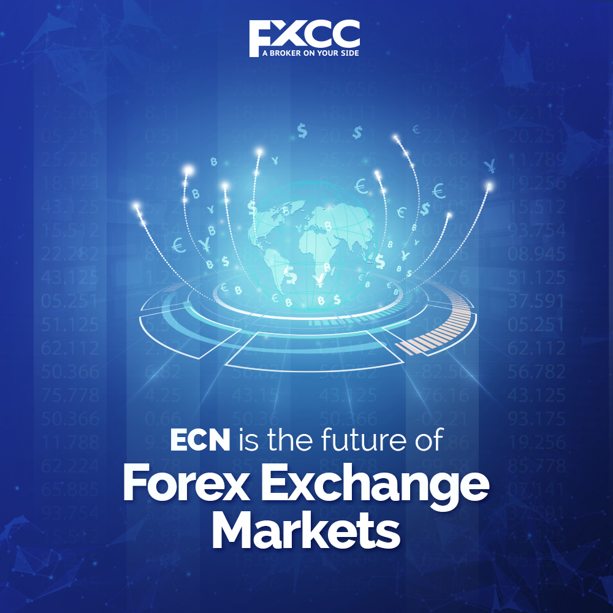Our world of forex trading is full of anacronyms, initials, jargon and slang. Understanding many of the concepts behind the terminology is essential wherever you are on your trader development path.
ECN trading began pre-internet, in 1990 in the USA. But it wasn’t until retail FX trading became mainstream at the turn of the century that the process became popular.
The initials ECN stand for Electronic Communication Network. Many FX brokers advertise their ECN service to differentiate themselves from the competition.
A text-book definition of ECN might read like this; “ECN trading is an electronic communication network digital system that matches buyers and sellers looking to trade securities in the financial markets. The system allows brokerages and investors to buy and sell without a third party involved, offering privacy for investors.”
A more practical explanation could be after you’ve clicked buy or sell on your MetaTrader MT4 platform, your broker puts your FX buy or sell order into a vast liquid pool of other brokers’ trades. It then gets matched asap and as close to the price you saw quoted on your platform.
The vast pool of liquidity supply combines institutional and retail orders; your broker is trying to get the best price alongside dealers from Morgan Stanley and Goldman Sachs. And many of the tier1 banks, hedge funds, and liquidity suppliers will operate in the same environment as you.
An ECN is not a regulated market overseen by one authority. It isn’t a physical exchange, it’s virtual, and a body like the UK’s FCA or CySec in Cyprus doesn’t audit the ECN. What both highly respected authorities do is carefully monitor brokers’ compliance and conduct while looking after your interests.
Why ECN + STP gets classed as the best combination
ECN brokers can also be STP (straight-through processing), brokers. The combination of ECN + STP is the gold-standard for brokers operating in the retail FX space. The straight-through description is self-explanatory; your order is put straight through into the ECN with absolutely zero interference or manipulation by your broker.
ECN-STP brokers usually avoid running dealing desks. Dealing desk (DD) brokers are often classed as market makers (MM). With DD and MM, the broker is dealing primarily for themselves and making a market in the markets they trade. Therefore, many would suggest that both forms of broker intervention work against the best interests of traders and investors.
The combined process of ECN-STP market access is valued for several reasons; transparency, speed of execution, privacy and efficacy. Brokers who adopt this protocol are therefore highly respected.
Transparency and speed of execution with ECN
Your ECN-STP broker will disclose their upfront fees and spreads. It’s in their interest to route your order to market asap and at the best quote available.
ECN brokers thrive or wither based on the volume of trades they execute. Happy clients equal repeat business and the principal unique selling point ECN brokers have to offer is rapid access and tight spreads. The more they satisfy their clients’ demands, the more repeat business they can generate.
Privacy and efficacy of ECN + STP
Your order is entirely private. There is no “second look” before the ECN-STP broker transacts the order; your order is anonymous. Your broker acts in your best interests; they’re not trying to game you or the process by making a market that works against you.
With the ECN-STP model, a broker has no incentive to take the other side of your trade, although they may hedge their positions to protect their overall market exposure.
If you’re new to trading financial markets such as FX or metals, then you have to make some quick decisions. You have to make a pros and cons list to whittle down what securities you’ll trade who you’ll trade through and which platform you’ll execute your trades.
There are thousands of online FX brokers, and you must engage in some critical thinking and research over and above flashy websites or creative marketing stunts that have attracted you to a broker or the industry.
You can probably cut the list of European brokers down to less than fifty if you apply some essential criteria.
- Are they ECN?
- Are they STP?
- Do they provide MT4 or MT5?
- Have they been in business for over five years?
- Do they have both CySec and FCA approval and licences?
- What are their typical spreads?
After that, a quick google to establish their reputation should give you enough comfort to consider opening an account. Does FXCC satisfy all the criteria named above? Of course, we do, but we’re not here to humblebrag or denigrate the competition. As an honest and open broker, we’d encourage you to adopt these standards wherever you trade.


